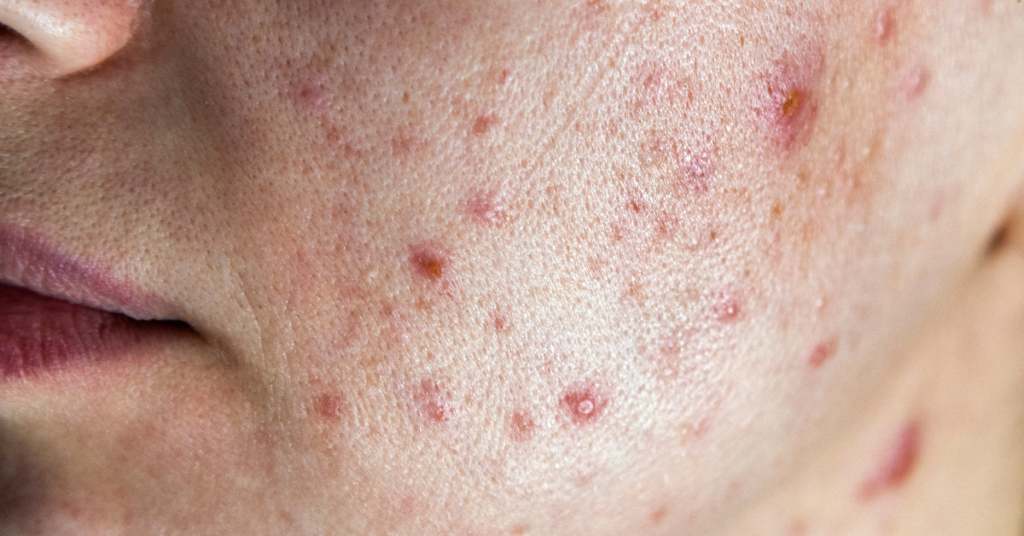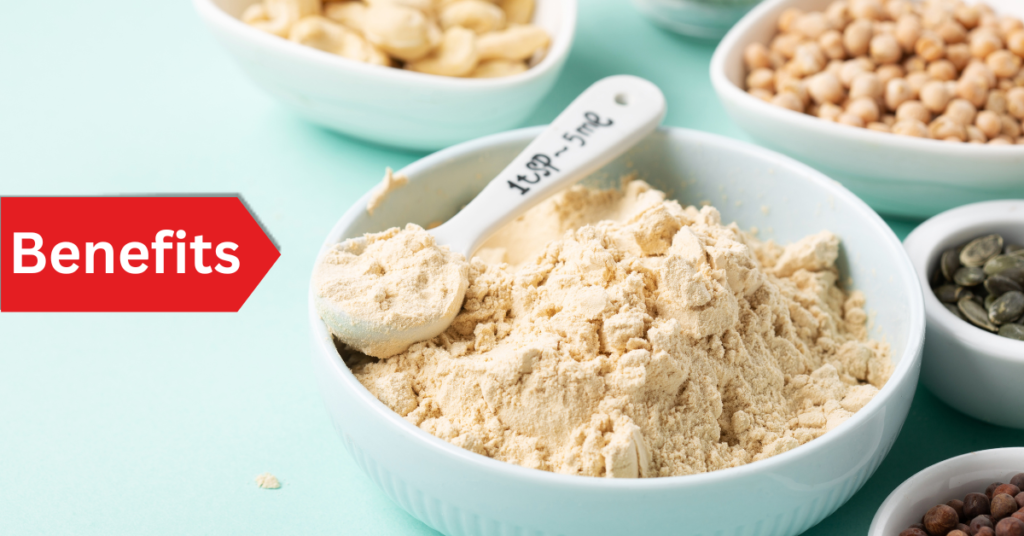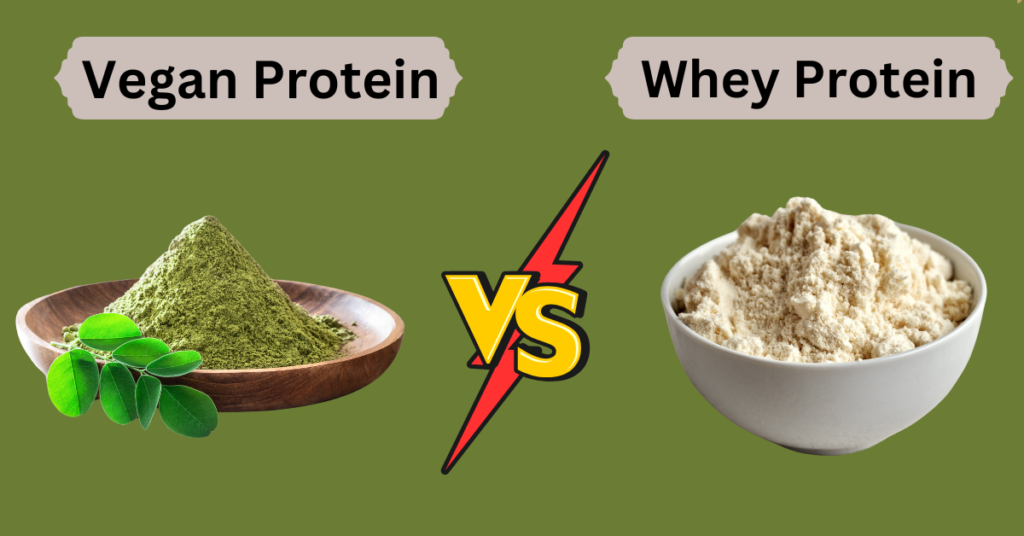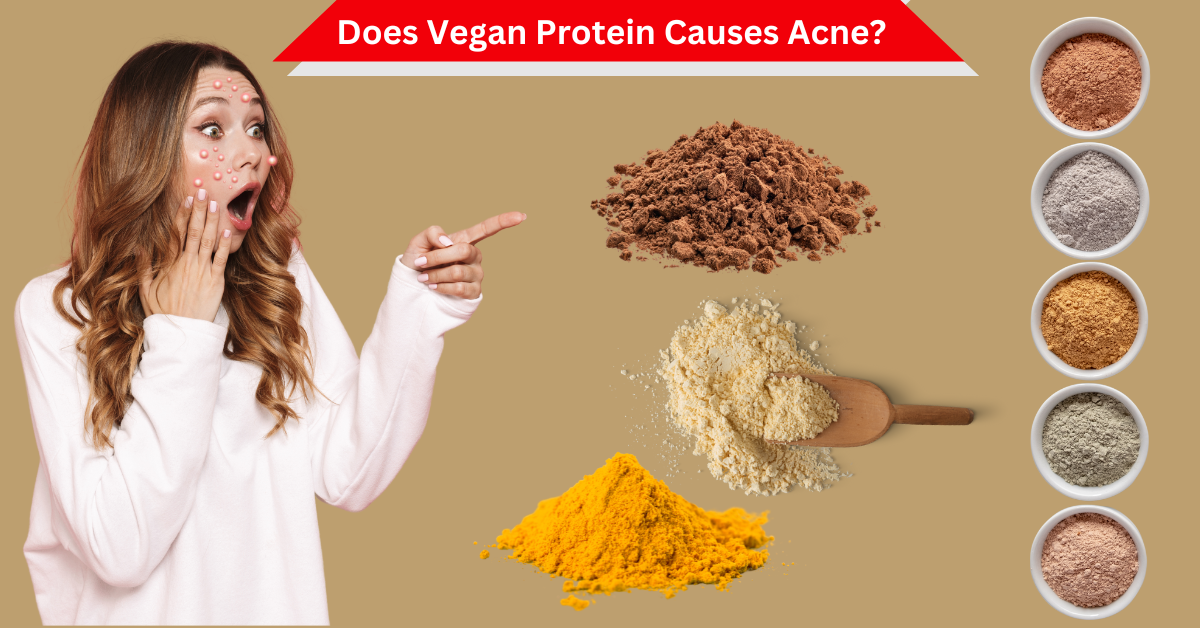For plant-based diets, vegan protein is popular, although some people are concerned that it can lead to acne. Numerous factors, including food, might influence acne. Although vegan protein isn’t typically the reason, some protein powder components may cause skin problems. This post examines the possibility that “Does Vegan Protein causes acne?” lists potential ingredients to look out for, and offers advice on how to consume vegan protein without causing acne.
Table of Contents
What is Vegan Protein?
Vegan protein is a particular type of protein that is derived from plant and not animal sources of supply. They consume it as a way of making muscles, boosting their strength, or as a way of getting proteins if they do not want to consume animal products such as meat, dairy, or eggs.
While everybody loves some good things associated with vegan protein such as reduced risk of heart diseases, weight loss, and muscular gain among others, some people ask, ‘Is vegan protein causing acne?’ Let us consider why people have this notion and what must be going on.
What is Acne? And Its Causes

A acne is a skin disorders that affect a lot of people. It mainly appears in the form of pimples, blackheads, or whiteheads, and it is always so annoying. The formation of acne is usually due to blockage of the hair follicles with oil and/or dead skin cells, or bacterial infection.
There are many sources of acne, but diet can be one of them. If one has sensitive skin, some foods might cause a reaction on the skin of that person As much as people might view it as unusual, this is true, especially in people with sensitive skin.
Does Vegan Protein Cause Acne?
However as mentioned before, vegan protein in its pure form doesn’t normally contribute to acne. This protein found in peas, rice, hemp, pumpkin, and several other types of plants is not going to produce acne or blotches on your face.
However, some other vegan protein powders may contain additional things such as sugars, artificial flavors, or other things that may cause acne in some individuals. For instance, some of them cause swelling while others can compel the body to secrete more oil in turn resulting in the formation of pimples.
Therefore, if you’re using vegan protein and you find that you develop acne, it is not necessarily the protein causing this, but some of the other ingredients that you are taking in together with the protein powder.
Ingredients to Watch Out For in Vegan Protein Powders
Here are some ingredients that can sometimes trigger acne:
Soy: Most of the vegan protein powders have soy as the primary source of protein. While it may benefit most people, soy can interfere with hormones in a few and may cause acne.
Sugar: Some protein powders, whether plant-based or animal-based often contain extra sugar in them in order to enhance taste.
Artificial Flavors or Sweeteners: The skin can also react to some of the flavorings and sweeteners used in most consumable products. So, if you find a breakout, just look at the list of ingredients and likely these are in there.
Thickeners and Preservatives: These are included to improve some characteristics of the powder mix or to prolong its shelf life, yet they can cause blockage of pores or skin inflammation.
If you find a protein powder with only natural, plant-based ingredients and no added sugars or chemicals, it may be less likely to cause acne.
Benefits of Vegan Protein for Skin Health

Your skin may benefit from vegan protein! You must incorporate plant-based proteins into your skincare routine since they offer nutrients that support healthy skin. Here are a few instances:
- Pea Protein: The amino acids included in peas are excellent for maintaining and healing the smoothness of your skin.
- Hemp Protein: Omega-3 fatty acids included in hemp seeds have anti-inflammatory and anti-acne properties.
- Pumpkin Seed Protein: Zinc, which is found in pumpkin seeds, may help acne sufferers manage their oil production.
Healthy skin depends on eating adequate protein, therefore it’s beneficial if you’re receiving it from vegan sources. Just make sure to select premium protein powders and avoid ones with a lot of extra additives.
Side Effects of Vegan Protein
Vegan protein is generally healthy, but some people may experience side effects, including acne, due to certain ingredients in protein powders. Here are some factors to consider:
- Additives and Sweeteners
Protein powders that contain artificial tastes and sweeteners may irritate skin and cause acne. To improve the health of your skin, choose products with less additives. - Sugar Alcohols
Due to inflammation, sugar alcohols like xylitol can aggravate digestion disorders, which can then exacerbate skin conditions like acne. - Legume-Based Proteins
Some people may experience allergies or digestive disturbances due to pea or soy proteins, which can result in skin responses and inflammation.
Choosing a vegan protein with minimal additives and being mindful of your body’s reactions can help you avoid skin issues while enjoying plant-based protein.
Tips for Choosing Vegan Protein Powder
If you’re worried about acne, here are some tips to help you pick a better vegan protein powder:
- Choose Unsweetened or Naturally Flavored Options: Minimally processed powders, which assertively do not contain extra sugars or artificial flavoring, are the best.
- Stick to Simple Ingredients: Read the label to ensure that there are only a few simple and whole-food components such as pea protein or pumpkin seed protein.
- Avoid Common Triggers: If some ingredients are known to cause acne for you, for example, soy or artificial sweeteners do not buy such products.
- Start with Small Servings: If you switch from one protein powder to another, it is advisable to take a DSP portion first and observe the skin’s response.
Choosing a clean, simple vegan protein powder can help you avoid any unwanted skin reactions.
Vegan Protein VS Whey Protein

| Factor | Vegan Protein | Whey Protein |
| Source | Produced using plant-based ingredients such as rice, hemp, pumpkin seeds, and peas. | Made from dairy (milk by-product) |
| Effect on Acne | Less likely to cause acne due to the absence of dairy | Dairy products may aggravate acne by causing an increase in oil production. |
| Hormonal Impact | Generally low impact on hormones, especially if soy-free | Can have an impact on certain people’s hormones, thereby raising their risk of outbreaks. |
| Ingredients | Frequently contains extra organic elements derived from plants | Contains amino acids, artificial sweeteners, or other additives are present. |
| Common Additives | May contain flavors, sugars, or preservatives. | Frequently contains sugars, thickeners, and artificial flavors. |
| Recommended for Acne-Prone Skin | Is frequently a safer option for skin prone to acne, | It might not be the best option for skin that is prone to acne. |
This table highlights the key differences between vegan and whey protein regarding their effects on acne and other skin considerations.
How to Tell if Your Protein Powder is Causing Acne
If you’re worried that your protein powder might be causing acne, here’s what you can do to figure it out:
- Keep a Food and Skin Diary: Record all the foods you take including your protein powder and observe whether there is any change on your skin. This should help you find trends.
- Stop Using the Powder Temporarily: Avoid the protein powder for two weeks and see if the condition of your skin changes at all.
- Try a Different Brand: Of course, if you still want to use vegan protein, look for another brand with fewer ingredients to see if it will solve the problem.
Keeping track of your skin’s response can help you find out if your protein powder is the cause.
Conclusion
Vegan protein usually doesn’t result in acne. There are numerous causes of acne, and additional substances or lifestyle choices are typically to blame rather than the protein itself. Acne can be avoided by selecting a pure, premium vegan protein powder with few additives.
Try switching to a more straightforward vegan protein powder, staying hydrated, and maintaining a healthy diet if you do suffer from acne. Keep in mind that each person has a different type of skin, so what suits one may not suit another. You may choose the ideal alternative for your body and benefit from vegan protein without worrying about any negative effects by keeping an eye on what you eat and how your skin reacts.
More Interesting: Is Oil Cleanser Good for Oily, Dry, and Acne Prone Skin?
FAQS
Is vegan protein worse than whey?
Although vegan protein may have somewhat less complete amino acid profiles than whey, it nevertheless offers comparable advantages. While vegan protein is suitable for anyone with dietary choices or constraints, whey often absorbs more quickly.
Is vegan protein better than whey for acne?
Indeed, since they can raise hormones associated with breakouts, vegan protein is frequently healthier for acne. Proteins derived from plants are typically less likely to cause skin problems.
Is vegan protein as good as normal protein?
Although vegan protein might not contain all of the essential amino acids found in animal-based protein, it can nevertheless be just as effective. It can be made equally complete and advantageous by combining several plant proteins.
Is vegan protein powder hard to digest?
For some people, particularly those who are lactose intolerant, vegan protein powder is simpler to digest than whey. Sensitive people may still experience minor bloating from some plant proteins, such as rice or peas.

